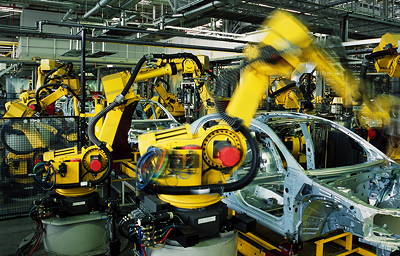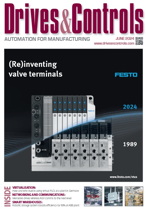India's largest car-maker makes the connection

India’s biggest car-maker, Maruti Suzuki, is turning increasingly to the CC-Link open network to help it cut its automation costs, to share data, and to make its operations more efficient.
For more than 25 years, Maruti Suzuki has been the largest car manufacturer in the Indian market. It currently makes more than 1.5 million new vehicles every year. At its manufacturing plants in Gurgaon and Manesar, the company produces 15 different brands and more than 150 variants. It is the only Indian car-maker to have hit the 10 million sales benchmark and it exports around the world.
Maruti Suzuki’s manufacturing plants are highly automated, and are constantly being updated with new technologies and improved systems. In recent times, the company has installed several CC-Link industrial communications networks to enhance various systems on its shopfloors, as part of a continuous development plan.
CC-Link is an open networking technology that allows devices from different manufacturers to be mixed and matched on the same network, allowing users to choose best-in-class control equipment, rather than being tied to a single manufacturer. Currently there are more than 1,200 CC-Link-compatible products available from more than 260 manufacturers worldwide.
CC-Link can create networks that integrate digital I/O on the shopfloor directly with enterprise IT systems so that stores, production, sales and distribution, finance and marketing become a single seamless operation. It is available in two formats: as gigabit industrial Ethernet; and as a fieldbus.
One application where Maruti Suzuki is using CC-Link is a cordless limit wrench system that provides fool-proof torquing of critical joints during vehicle assembly. It guarantees that the correct torque is applied by stopping the assembly conveyor if a joint is over- or under-torqued, or missed completely.

Previously, the torque control system was hard-wired and extremely complex. CC-Link has reduced the wiring and complexity by an order of magnitude, improving reliability and making maintenance much easier. It has also freed up shopfloor space and cut costs by allowing a much smaller control panel to be designed.
The networking technology has also been retrofitted to what Maruti Suzuki calls the “pika pika” system – its interpretation of the “poke yoke” error-proofing system. The system guides the correct selection of components during assembly and prevents incorrect parts from being used. With such a large number of vehicle variants going down the line, without this kind of assistance it would soon become difficult for assembly workers to always be sure they are fitting the right parts on the right vehicles.
Use of CC-Link in the pika pika system has cut costs by simplifying cabling, reducing installation times and increasing flexibility when lines are changed or updated. It is also playing a key role maintaining vehicle quality by ensuring errors are eliminated at source, preventing expensive re-work and making sure defects do not reach the customer.





